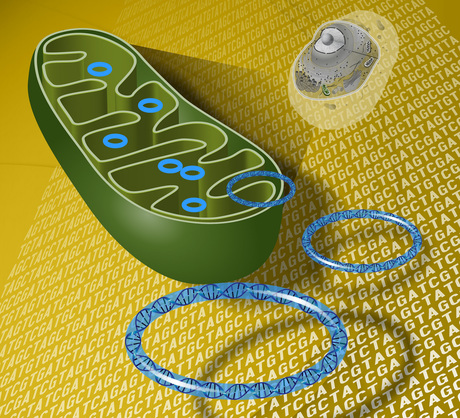Autism linked to mutations in mitochondrial DNA

According to US researchers, children diagnosed with autism spectrum disorder (ASD) have greater numbers of harmful mutations in their mitochondrial DNA (mtDNA) than their family members. The results of this breakthrough study have been published in the journal PLOS Genetics.
While previous studies have pointed to malfunctions in mitochondria as a cause of ASD, the biological basis for this relationship has been unclear. Scientists from Cornell University and Columbia University Medical Center proposed that a possible cause of ASD is the genetic variation in the mtDNA sequence, which had yet to be thoroughly investigated in large genomic studies of ASD.
The researchers evaluated this variation by analysing mitochondrial DNA sequences from 903 children with ASD, along with their unaffected siblings and mothers. The result was that they discovered a pattern of heteroplasmic mutations, where both mutant and normal mitochondrial DNA sequences exist in a single cell.
Children with ASD had more than twice as many potentially harmful mutations compared to unaffected siblings and 1.5 times as many mutations that would alter the resulting protein. These mutations could be either inherited from the mother or the result of spontaneous mutation during development, according to the researchers.
The scientists noted that the risk associated with these mutations was most pronounced in children with lower IQ and poor social behaviour compared to their unaffected siblings. Carrying harmful mutations in mitochondrial DNA is also associated with increased risk of neurological and developmental problems among children with ASD.
Because mitochondria play a central role in metabolism, the team’s findings may help explain the metabolic disorders commonly associated with ASD and other neurodevelopmental disorders. According to the study authors, evaluating mutations in the mitochondrial DNA of high-risk families could help improve the diagnosis and treatment of these diseases.
“Since many neurodevelopmental disorders and related childhood disorders show abnormalities that converge upon mitochondrial dysfunction, and may have mtDNA defects as a common harbinger, future research is needed to elucidate the mitochondrial mechanisms underpinning to these diseases,” said Zhenglong Gu from Cornell University.
“Ultimately, understanding the energetic aspects of neurodevelopmental disorders may lead to entirely new kinds of treatments and preventative strategies that would target mitochondria.”
Mouth bacteria linked to increased head and neck cancer risk
More than a dozen bacterial species that live in people's mouths have been linked to a...
Life expectancy gains are slowing, study finds
Life expectancy at birth in the world's longest-living populations has increased by an...
Towards safer epilepsy treatment for pregnant women
New research conducted in organoids is expected to provide pregnant women with epilepsy safer...




